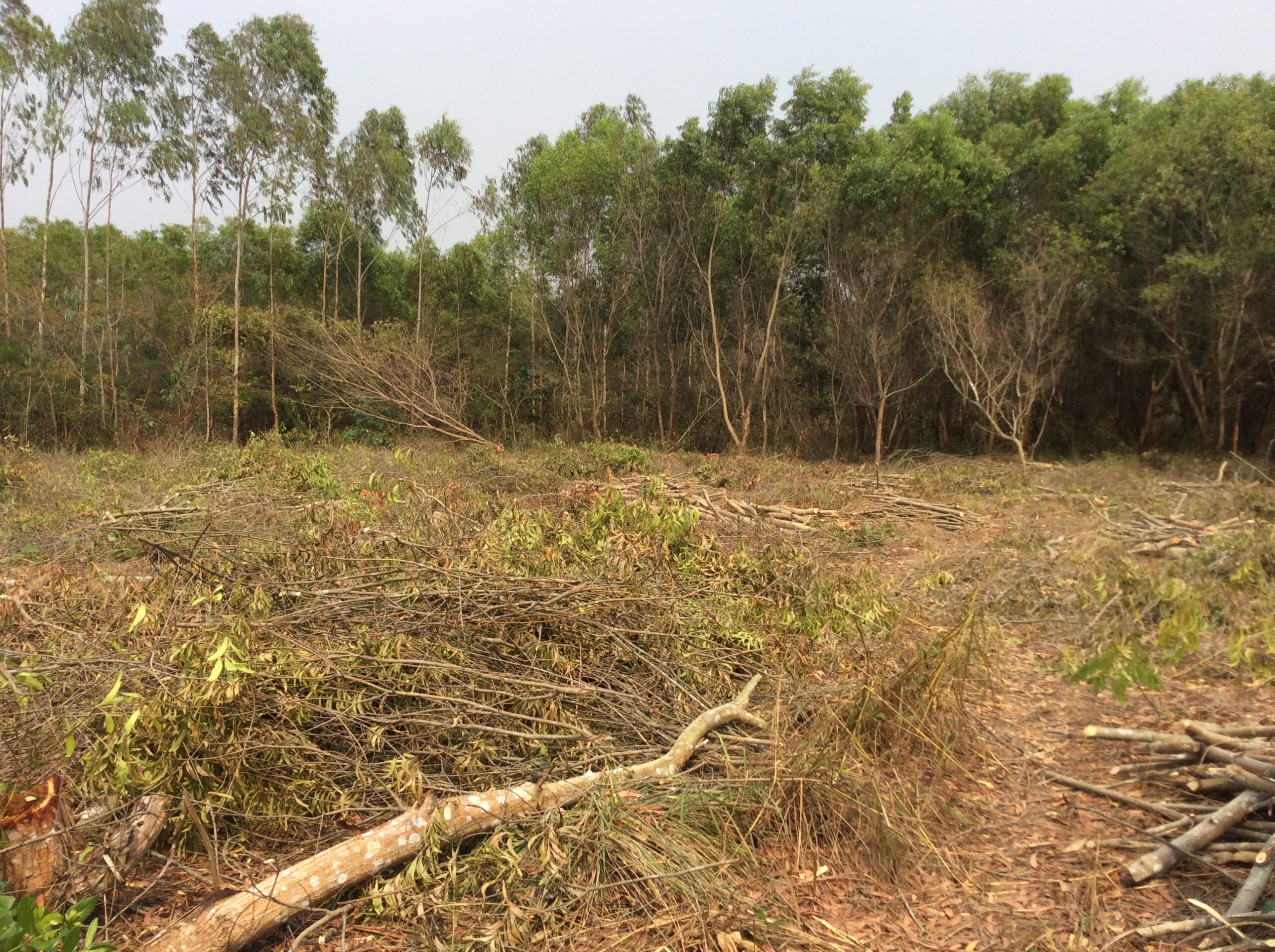- The Muti Idwin[1] Ntsio project
The Muti Idwin[1 ] Ntsio project is a project initiated by the Hanns Seidel Foundation (HSF), with funding from the European Union. It is being implemented in the west of the country, 200 km from downtown Kinshasa, in the Mwe and Mongata neighborhoods of Maluku Commune.
The project was initiated to install 260 farmers on a total area of 5,500 ha. It aims to help urban and rural populations by increasing the supply of food and wood energy products in the capital. To this end, four associations have been set up to manage the site, as well as to group, transport and market the products in order to ensure the sustainability of the project’s activities. It should be noted that this project is located in an area of grassy savannah, which is now transformed into forest.
Each farmer is entitled to a house, 15 ha of acacia and eucalyptus plantations, 1.4 ha of orchard and 0.6 ha of palm grove. Farmers are grouped in a camp of 4 households. They are also entitled to one water tower per association with a standpipe, which they pay for in a “prepaid” format, and two elementary school for the education of their children. Each association has an office, a meeting room, a warehouse and a honey house for the exploitation of honey.
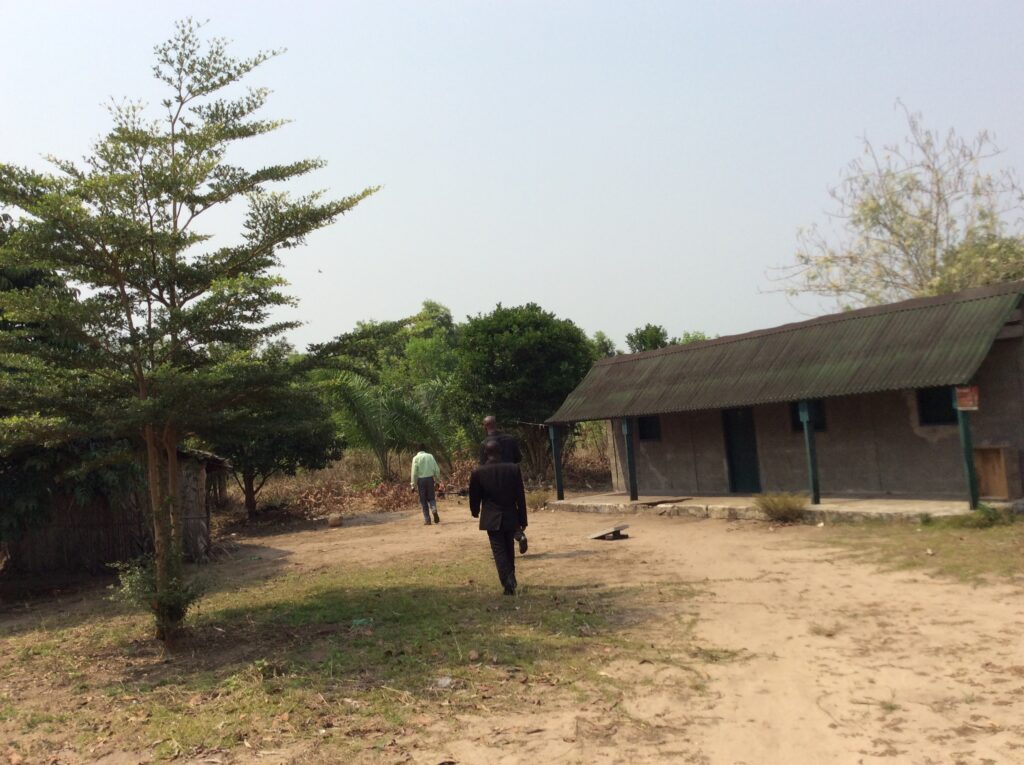
The project provided them with tractors to plow the land. They start by planting food crops (cassava, maize, cowpeas, etc.) before planting trees. The agricultural products provide them with food and income after the sale. They put hives under the trees for beekeeping. Now that the trees have reached the age of 7 years, they start to exploit them to make embers.
With the support of Inades-Formation Congo, they developed a regulation for the exploitation of ember. Criteria are defined for the exploitation, including: to have a forest that has reached the age of 7 years; to be in order of contributions, and/or to sign an act of commitment to pay its debts from the first exploitation; to exploit 1 ha in the high season and ½ ha in the low season; to introduce a request and to have the authorization.
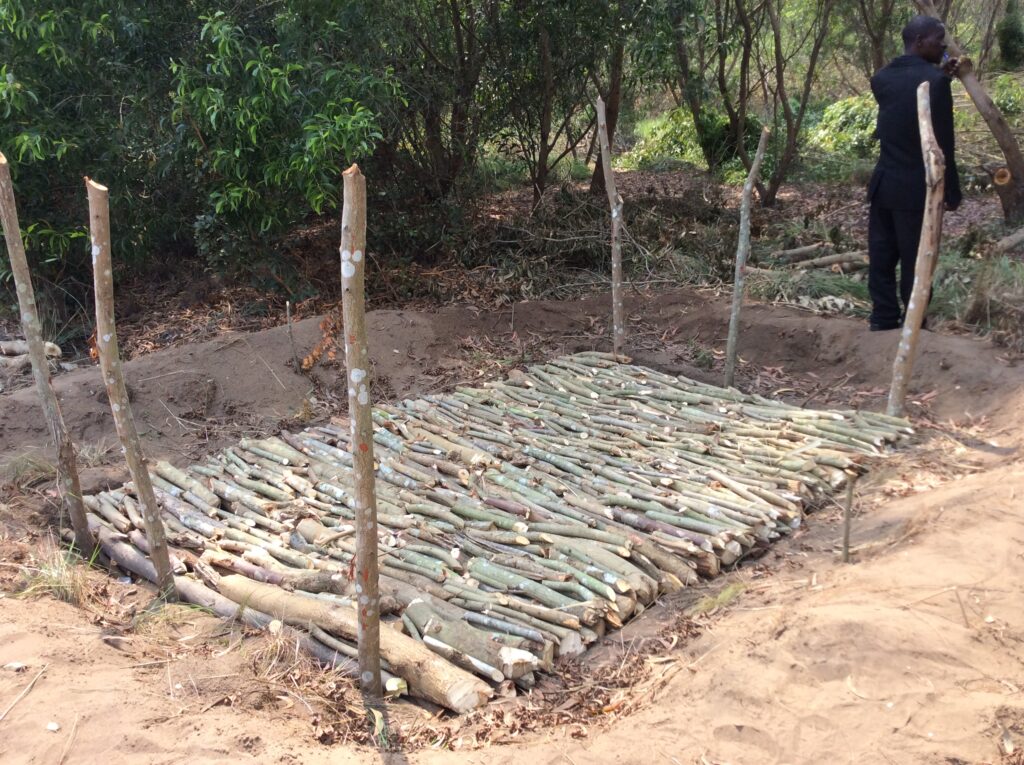
This afforestation allowed the farmers of the surrounding villages to have edible caterpillars, which disappeared decades ago. And also to improve the rainfall of the environment.
In order to enable these associations to be well organized and capable of managing the resources made available to them, the Hans Seidel Foundation has requested the technical support of Inades-Formation Congo in terms of structuring for a period of 3 years, from 2019 to 2021, extended to June 2022.
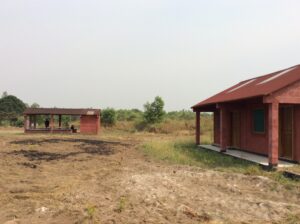
- Mission of Inades-Formation Congo
Inades-Formation Congo’s mission was to help associations improve their maturity (ability to organize their associations), their governance (ability to manage their associations), their autonomy (ability to mobilize their financial resources) and their type of support (ability to provide services to their members).
- Initial situation of the Associations before the support of the Inades
Before starting its intervention in the framework of this project, Inades conducted an organizational and institutional assessment of these associations to determine their institutional capacities and propose a strengthening plan.
At the end of this evaluation, the starting situation of these associations was as follows:
- The basic texts (statutes and IR) were not well known by most members and elected officials in all associations;
- Confusion between the member’s commitment act signed with the project and the basic texts of the association (statutes and IR);
- The associations did not work on the basis of strategic documents (Policy and Action Plan, action plan, business plan, campaign plan)
- Confusion between budget and action plan
- Absence of a manual of rules and procedures for administrative, financial and accounting management.
- Some management tools were not well maintained and others were not up to date;
- Absence of certain supporting documents;
- Absence of control reports and the control focused only on the cash register;
- Absence of activity and financial reports;
- Weak organization of marketing. (the sale of products individually)
- Summary of support provided
During three (3) years and three (3) months of accompaniment, several supports were brought to the associations. We can cite:
- Support on the development, implementation and evaluation of strategic plans and management documents (orientation and action plan, business plan on different productions, action plan/campaign plan, management rules and procedures manual);
- Local support for the correct use of management tools, the preparation and conduct of statutory meetings, the organization of agricultural campaigns;
- Training sessions on control, self-promotion, conflict management, organization and functioning of an association, organization of group sales…);
- Data sheets produced in local languages and booklets were distributed to associations;
- Workshops on the mobilization of resources, the modalities of collecting contributions and the involvement of traditional chiefs in the proper functioning of the associations);
- Follow-ups of the National Directorate of field activities;
- Evaluation meetings of the activities by the project and Inades teams.
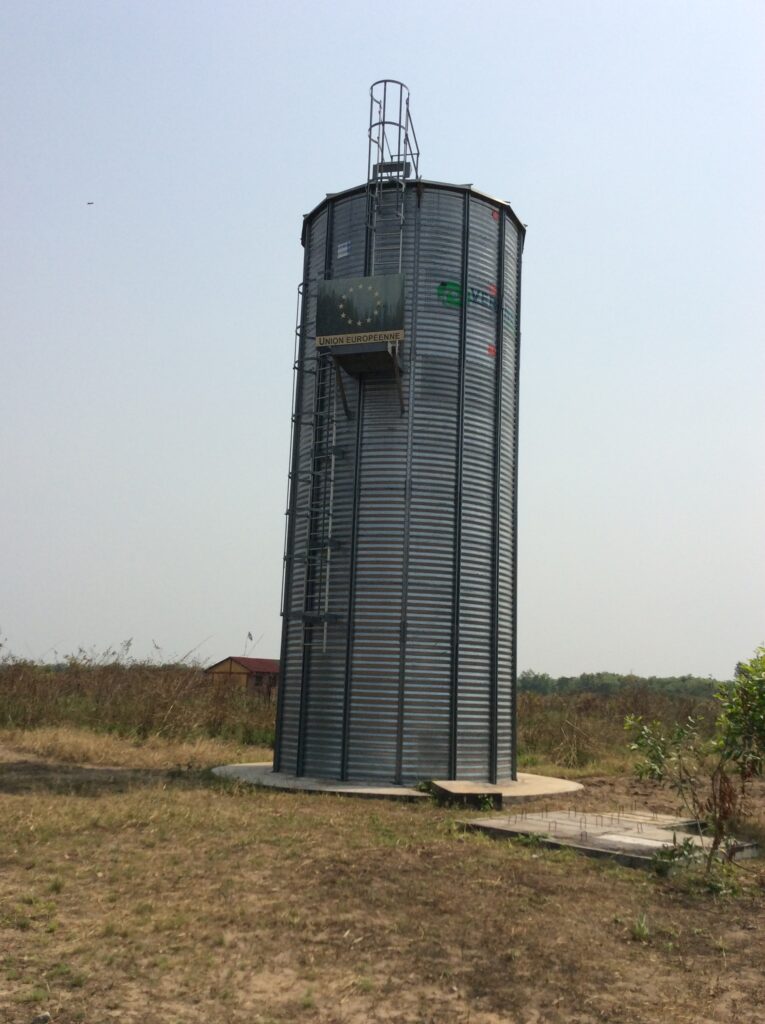
- Current situation of the associations
All of the support provided to the associations has resulted in the following changes and outcomes:
- Association members have acquired skills:
- In the administrative and financial organization of the offices: elaboration of the minutes of the statutory meetings, correct use of the management tools, better filing of the documents and management tools, elaboration and use of the manual of the rules and procedures of management,
- In the planning of activities: work is done on the basis of action plans, business plans for their income-generating activities (cassava, honey, chikwangue), the campaign plan (the latter was carried out by the FHS partner); concerted management on their family farm (farm)
- Mobilization of financial resources: members apart from cassava cultivation which allowed them to sell and have income, they introduced beekeeping, which gives more honey and is well sold on the local market. And soon they begin the exploitation of the trees in the manufacture of the ember.
- Conflict management: In the past, there were several conflicts in the different camps of the members. But with the training received in this area, conflicts have significantly decreased
- The members of the accompanied associations have become experts for other associations in the surrounding villages, who detect operating errors and give advice.
- The basic texts are known by the elected officials and members, which can be seen in the following:
- The renewal of the mandates of the elected representatives in the respect of the basic texts;
- The holding and excellent conduct of statutory meetings in accordance with the frequency and basic texts; the citation or reference to the articles of the texts in the introductory words of the presidents to the GA.
- The roles and importance of the Association are well known today:
- The satisfaction of the members regarding the services they benefit from thanks to the association (water, ploughing, farms, beehives for the production of honey, support to the marketing and the grouped sale of honey and chikwangues…);
- The regularization of debts by some members to allow associations to have the means to meet their commitments;
- The spirit of getting together for the protection of the domain (progress in the associative spirit);
- Awareness of the need to protect the common good and avoid absenteeism on the farms;
- Commitment of members (M/F) to apply for leadership positions in their associations;
- More or less assured support for water supply and storage;
- Organization of the grouped sale of chikwangues and honey in all associations;
- Lessons Learned
The following lessons were learned from the support provided to the associations in the framework of the agroforestry project:
- The best choice of members in the creation of associations with clear criteria that take into account the availability of people called to engage in agroforestry is a major asset for achieving results;
- The development and implementation of basic texts with the involvement of beneficiaries promotes ownership and adherence;
- The quality of the leadership and the respect of the commitments made, but also the multiplication of the sources of financing of the members constitutes a sufficient guarantee for the viability and the sustainability of the actions of the project via the associations.
[1] Muti Idwin: tree to give shade; in fact this project would mean protecting the environment with trees.
Norbert KINVULA, DBN IFCongo

